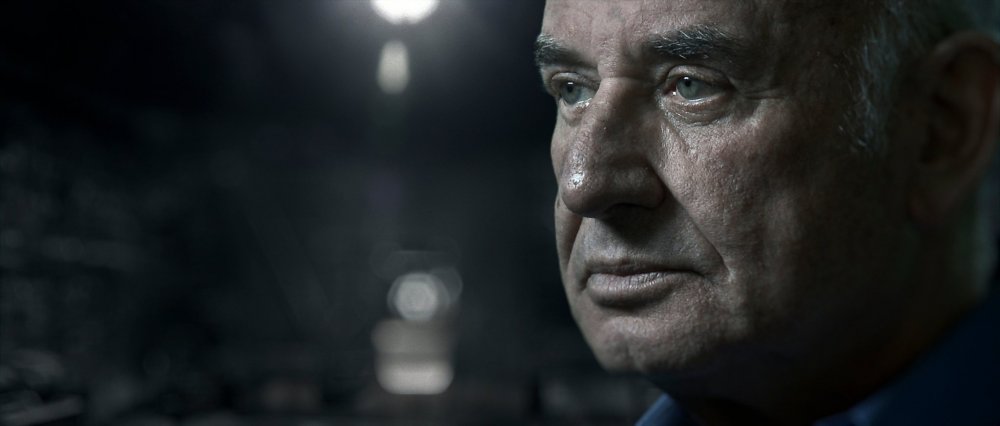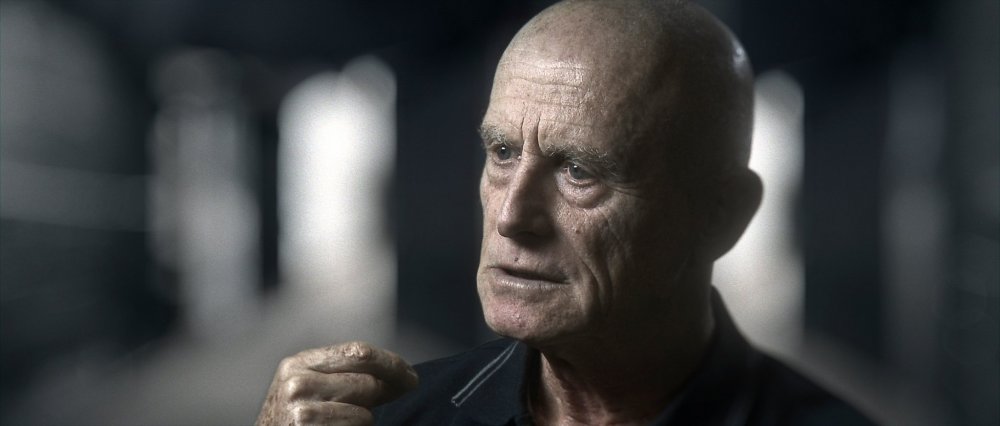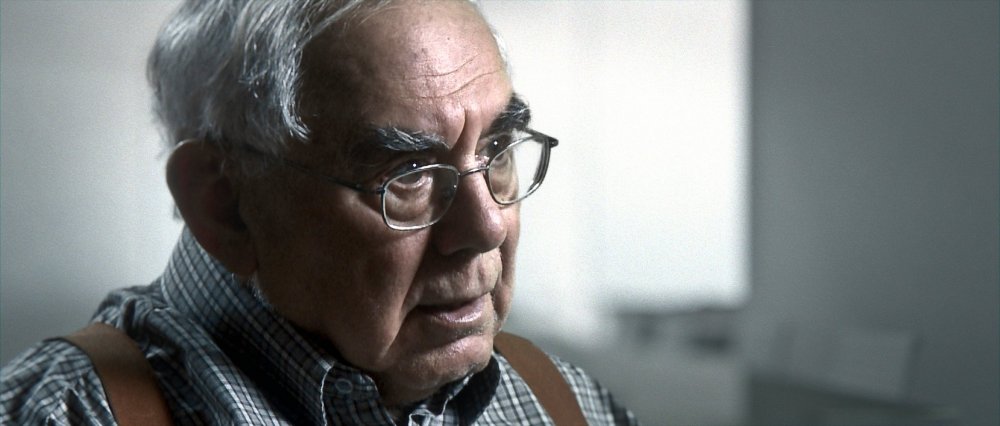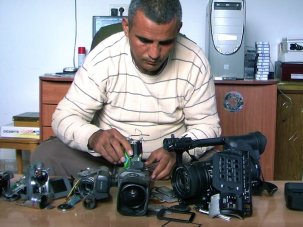from our May 2013 issue

Yaakov Peri
The target has been identified. A vehicle driving through a built-up area is there in the crosshairs. The order to fire could take out an enemy terrorist, but who else is travelling with them? Innocent individuals who’ll also perish? What about passers-by on the street? How many ordinary families could suffer in the collateral damage of a single word?
| Israel/France/Belgium/Germany/
Canada/The Netherlands/Sweden/
Denmark/Norway/Finland 2012 Certificate 15 100m 45s Director: Dror Moreh With Dolby Digital Distributor Metrodome Distribution Ltd |
Think about it and it’s a daunting task to play God, but one that’s a daily prospect for the chief of the Shin Bet, Israel’s internal security service. Under the motto ‘the unseen shield’, its officers work in secrecy, identities unknown to outsiders, the sole exception being the head of the organisation.
In a remarkable coup, filmmaker Dror Moreh has persuaded no fewer than six former Shin Bet directors to talk openly on camera about their experience of frontline operations. In time, The Gatekeepers delivers a detailed accounting of their battle-hardened ruminations, but before that it opens with aerial surveillance footage laying out, as described above, the stark consequences of any would-be surgical strike.
Life can be snuffed out in an instant, comes the message from these old warriors – but memories linger for years, decades even. Faces in the mirror, images in the wee small hours. Because of who these men are and what they’ve done, some viewers will find themselves in staunch ideological opposition to the likes of Avraham Shalom and Carmi Gillon. But before the arguments can even begin, Moreh’s film makes the fundamental point that, while they certainly have blood on their hands, rightly or wrongly, these subjects deserve the dignity of their humanity being recognised.
In asserting that members of the Israeli military have feelings too, The Gatekeepers aligns itself with Ari Folman’s 2008 film Waltz with Bashir (a documentary predecessor rather different in form from Moreh’s relatively conventional interview-and-archive assemblage) and indeed with fictional counterparts like Samuel Maoz’s Lebanon (2009). Still, the bulk of Moreh’s film goes much further in providing a frank and challenging analysis of the wider context, something those earlier offerings largely opted to sidestep. Much as one might credit the filmmaker’s evident powers of persuasion in getting these former intelligence commanders to line up individually before the camera, there’s also a sense that Avraham Shalom and his colleagues are there because they have something to say.

Ami Ayalon
The startling and authoritative result bears that out, for while we might expect a ringing endorsement of the Shin Bet’s ongoing mission to maintain the security of the state of Israel, what we get, across the board from interviewees whose service was decades apart, is a grim assessment of the bitter legacy of the Palestinian resentment spurred by their activities – “We wanted more security, we got more terror,” asserts one of their number.
Moreover, the witnesses also take to task Israel’s current political leadership for its absence of vision in moving beyond interminable attritional conflict towards a lasting political solution. “The tragedy of Israel’s public security debate,” reckons Ami Ayalon, the former naval commander who headed the Shin Bet from 1996 to 2000, “is that we don’t realise we face a frustrating situation in which we win every battle but lose the war.”
With such incendiary opinion on offer, it might have been a temptation for cinematographer-turned-director Moreh to lay out these testimonies end to end, since the words themselves are hardly lacking in impact (not without reason does Yaakov Peri, Shin Bet head from 1988 to 1994, suggest that “after retiring from this job, you become a bit of a leftie”). What makes the film so satisfying, though, is the appreciable craft with which the material is organised and presented, filtered through a post-1967 historical overview that allows the interviewees to reflect on the shifting demands of each new political and diplomatic era, and intercut with archive footage reflecting the transformation of the imagery of conflict across the decades. Thus we go from paternalist old-school newsreels of the Six-Day War, to street-level TV camerawork capturing the defiance of Palestinian opposition, to the now familiar aerial surveillance images that encourage the viewer’s complicity with the all-powerful aggressor as missile strikes hit their targets.
Positioned within an overall production-design context that cleverly draws on the iconography of espionage (filing cabinets, CCTV monitors, shadowy detention centres), the changing perspectives traced by these various archive formats productively encourage the viewer to look more closely at how the media present the unfolding story of the Israeli-Palestinian conflict.
It’s the revelations offered by the interviewees that are the real meat of the matter, however, indicating so many shades of moral uncertainty behind the seemingly implacable public face of Israeli state security policy. Whether it’s the Shin Bet’s reorganisation in the light of another million additional potentially hostile Palestinian citizens within Israel’s expanded borders after the Six-Day War, its being caught unawares by the First Intifada in 1987 or failing to prevent the assassination of PM Yitzhak Rabin by a Zionist extremist in 1995, the film delivers a pacy, agile narrative reflecting the men’s view that operational setbacks and tactical efficacy alike are undermined by ongoing questions of the moral authority of their orders. No coincidence, then, that a similar sort of doubt surfaced in the fictionalised environs of Steven Spielberg’s Munich (2005), though the focus there was on the lethal exploits of the Shin Bet’s sister organisation Mossad.

Avraham Shalom
In a way, debate over the use of force is to be expected in this documentary context, though there’s quite a diversity of positions outlined here: Shalom’s shocking admission that he authorised the killing of captured terrorists who’d hijacked a bus; the detailing of the precise circumstances in which enhanced pressure is permitted during suspect interrogations; an expression of defeat when a rare chance to take out an entire cadre of high-value Palestinian targets in one location is missed through political caution over collateral damage.
Hawkishness is definitely evident, especially from Messrs Shalom and Gillon, but what’s especially potent and disarming is how the film builds to an unequivocally despairing conclusion. “The future is dark,” reflects Shalom, who expresses a seeming consensus opinion among his compadres on the urgent need to seek a two-state solution, undercut by an equally clear assessment that the toxic combination of hardline security policy and a political leadership with little genuine taste for compromise renders such a solution extremely unlikely anytime soon.
Even more extraordinary, when Ayalon likens Israel’s current security-first relationship with the Palestinian territory to the German army’s repressive occupation of Poland and Holland during WWII, he appears to stop himself using a certain N-word to describe the cruelty which, in his opinion, has permeated his countrymen after decades of conflict. Moments such as these exemplify how this fiercely intelligent film is likely to challenge political assumptions across the spectrum, but it is in the end a partisan view, an act, however brutally honest, of self-analysis from the perspective of those for whom the continuing existence of an Israeli state is never in question.
As such, it’s perhaps advisable, if one is seeking a sense of the wider picture, to view it alongside, say, Emad Burnat and Guy Davidi’s recent Five Broken Cameras, a vivid and equally partisan portrait of the sufferings of ordinary Palestinians on the receiving end of Israeli security operations. It’s tempting to wonder too whether the same conundrum of squaring long-term peace with the demands of daily violent action is played out among the command structure on the Palestinian side, but we’ll almost certainly never hear those voices as we do here, since the Shin Bet has silenced so many of them.





